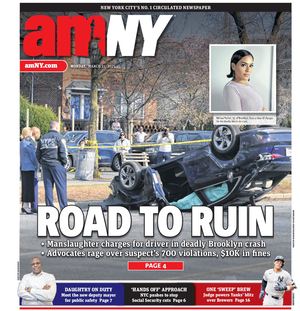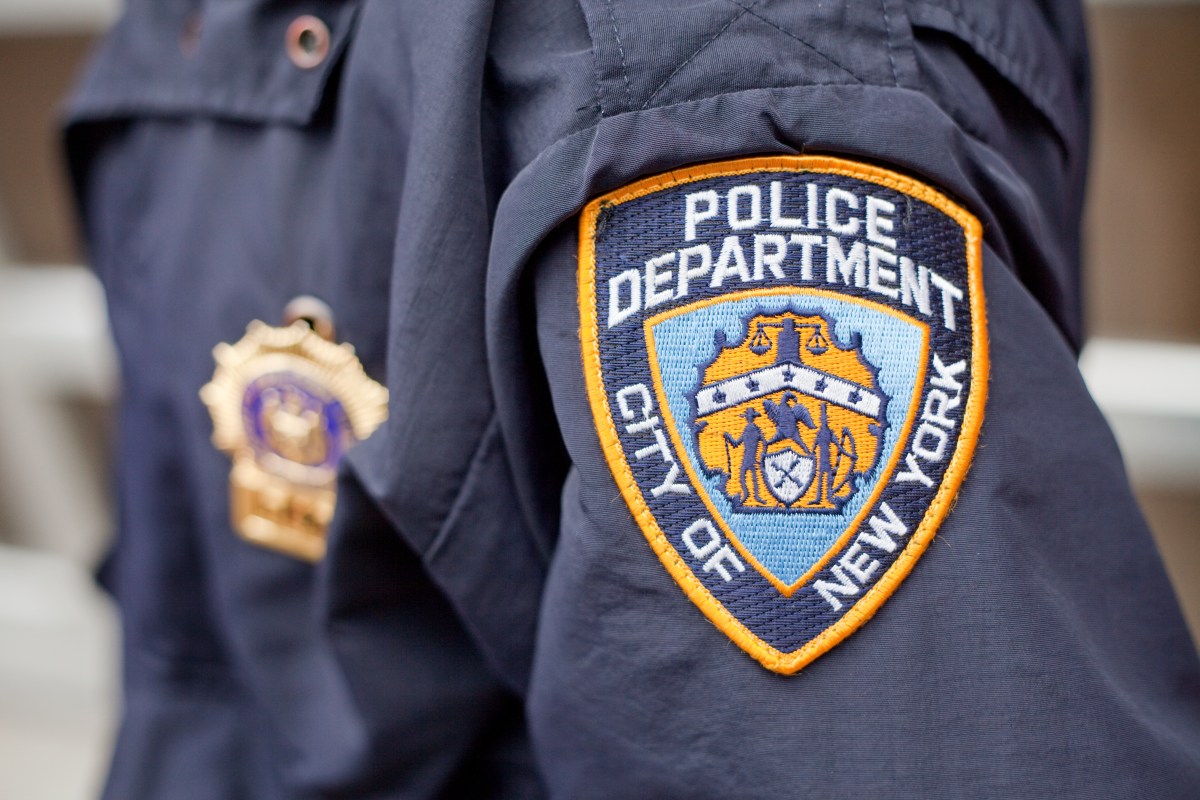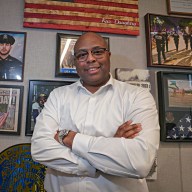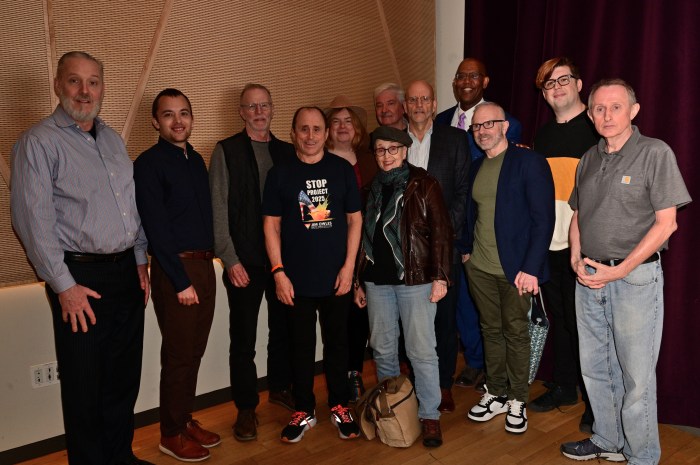Criminal justice advocates demanded on Monday that the NYPD get rid of its controversial gang database, alleging it contributes to discriminatory policing targeting Black and Brown New Yorkers.
Top police brass, including Commissioner Jessica Tisch, have repeatedly cited the department’s Discriminatory Criminal Group Database as an instrumental tool used to track and ultimately arrest trigger pullers who open fire in New York communities.
However, those who say they have found themselves on the wrong side of the directory, along with legal experts and advocates, charged outside City Hall on Feb. 24 that the database is a racist index, with 96% of all included on the list being Black and Latino individuals.
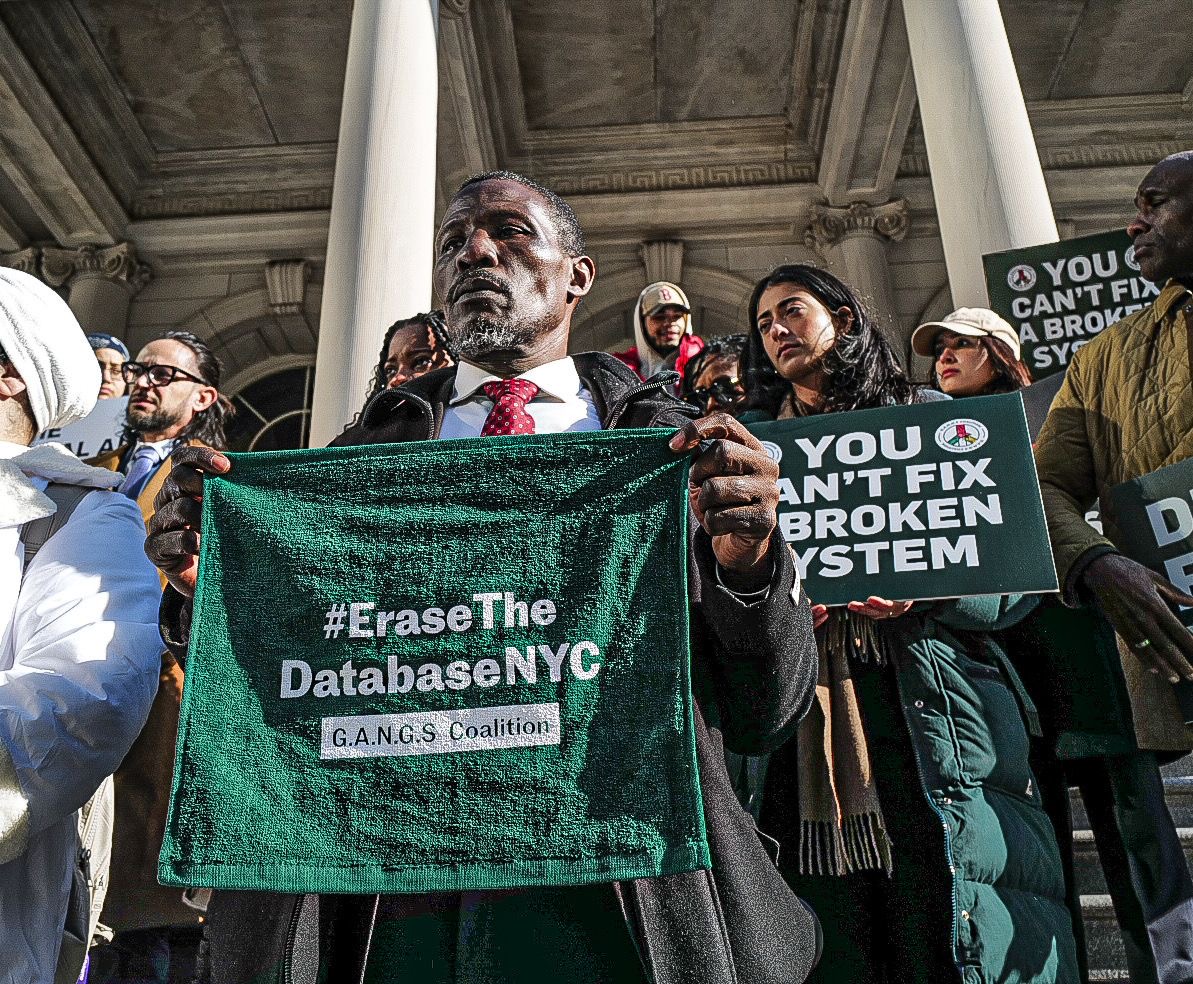
The G.A.N.G.S. Coalition rallied on the steps of City Hall on Monday morning ahead of a City Council hearing focusing on Intro 798 that — if passed — would abolish the index and prevent police from accessing the information. They would also be forced to notify anyone in the database.
Many speakers wept as they spoke, referring to it as inherently racist.
Bronx Council Member Althea Stevens, a sponsor of the bill, said that she originally was not on board with the amendment due to the spate of shootings plaguing the city but added that she changed her mind when she learned more about the database.
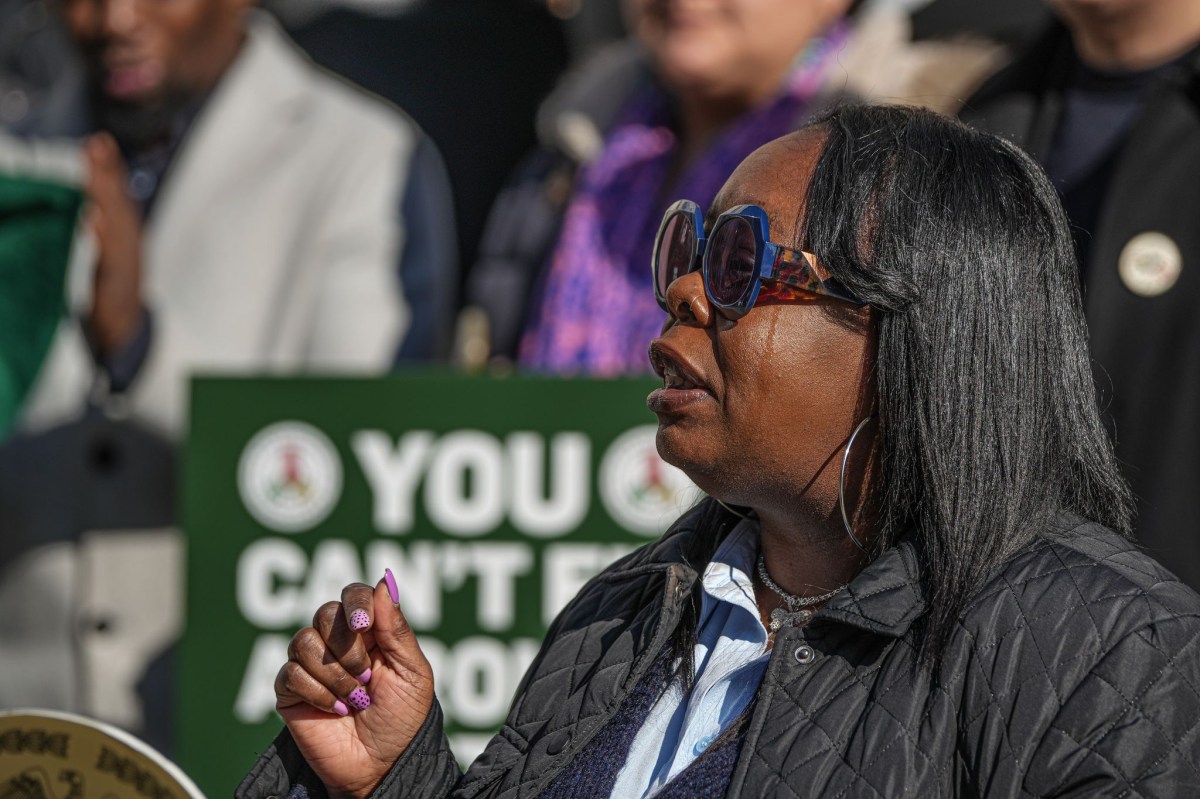
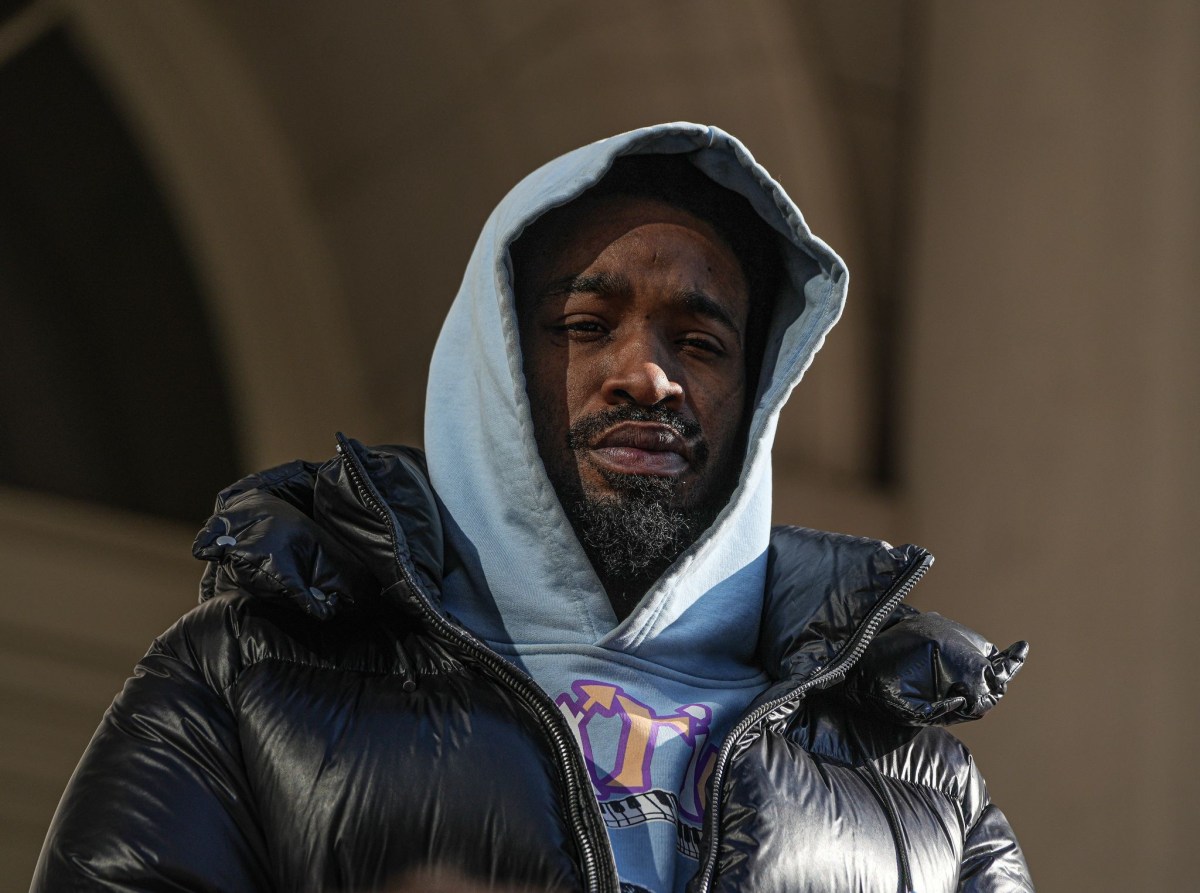
“After doing my own research and seeing the impact, talking to folks, understanding that this database is 96% Black and Brown young people, once we got there, there was nothing else — nothing else for me to research, because you cannot tell me that in New York City we only have Black and Brown gangs,” Stevens said. “This is about surveillance, this is about oppression, and this is about not trusting our community.”
The NYPD has said it adamantly disagrees with the accusations of racism and discrimination. Earlier this month, on Feb. 5, the police department and Brooklyn District Attorney Eric Gonzalez announced the indictment of 14 gang members who left a trail of bullets in the Sheepshead Bay and Coney Island section of the borough.
Tisch attributed the slew of arrests to the database, charging that anyone in favor of scrapping it does not understand its purpose and importance in combating crime for all New Yorkers.
“Let me be clear: being included in this database is not a crime, and it is in no way proof of criminal behavior, but it does provide the intelligence necessary for investigators to build a strong conspiracy case, and in this instance, it helped close out two dozen acts of violence,” Tisch said.
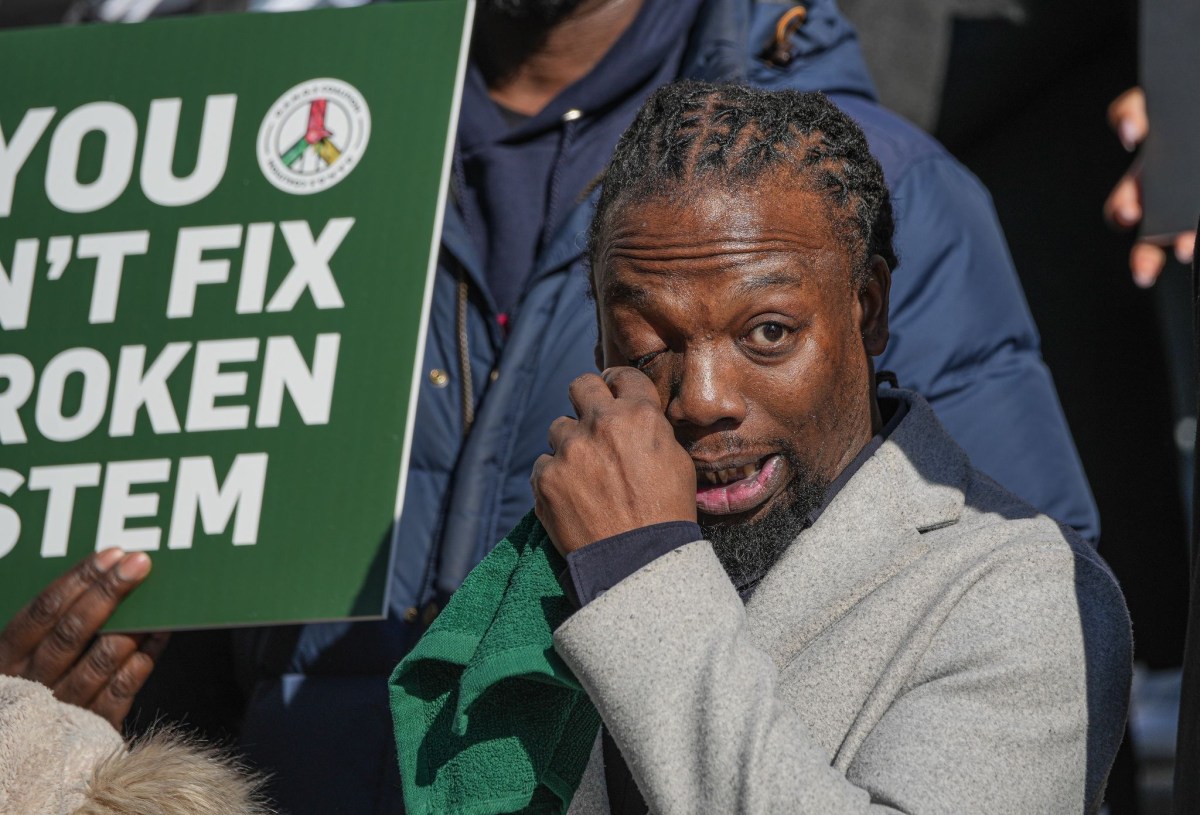
Critics accuse law enforcement of adding youth to the index — some as young as 13 years of age — who they say are not gang members. The advocates say mere acquaintances of gang members are placed into the database for just being seen with them.
“It has always been wrong and dangerous to surveil and label Black and Latino New Yorkers as members of “criminal groups” based on association (friendship and neighborhood groups) and expression. However, the urgency of erasing the NYPD’s Criminal Group Database (aka Gang Database) has never been greater than the present moment,” Professor of Law Babe Howell said. “As the racialized assault on expression and association have escalated, the NYPD’s inaccurate, secret database based on lawful activity must be eliminated.”
NYPD Chief of Detectives Joseph Kenny also spoke out earlier this month in support of the database and the aid, he says it, provides cops with combating gun violence.
“We utilize this information to prevent violence. We use it to predict where retaliation will take place. You know, it’s a very strict criteria to be added to this database,” Kenny said. “We just don’t add people for the sake of adding them. They have to meet a certain criteria, but we use it as an investigative tool.”
Read More: https://www.amny.com/politics/
